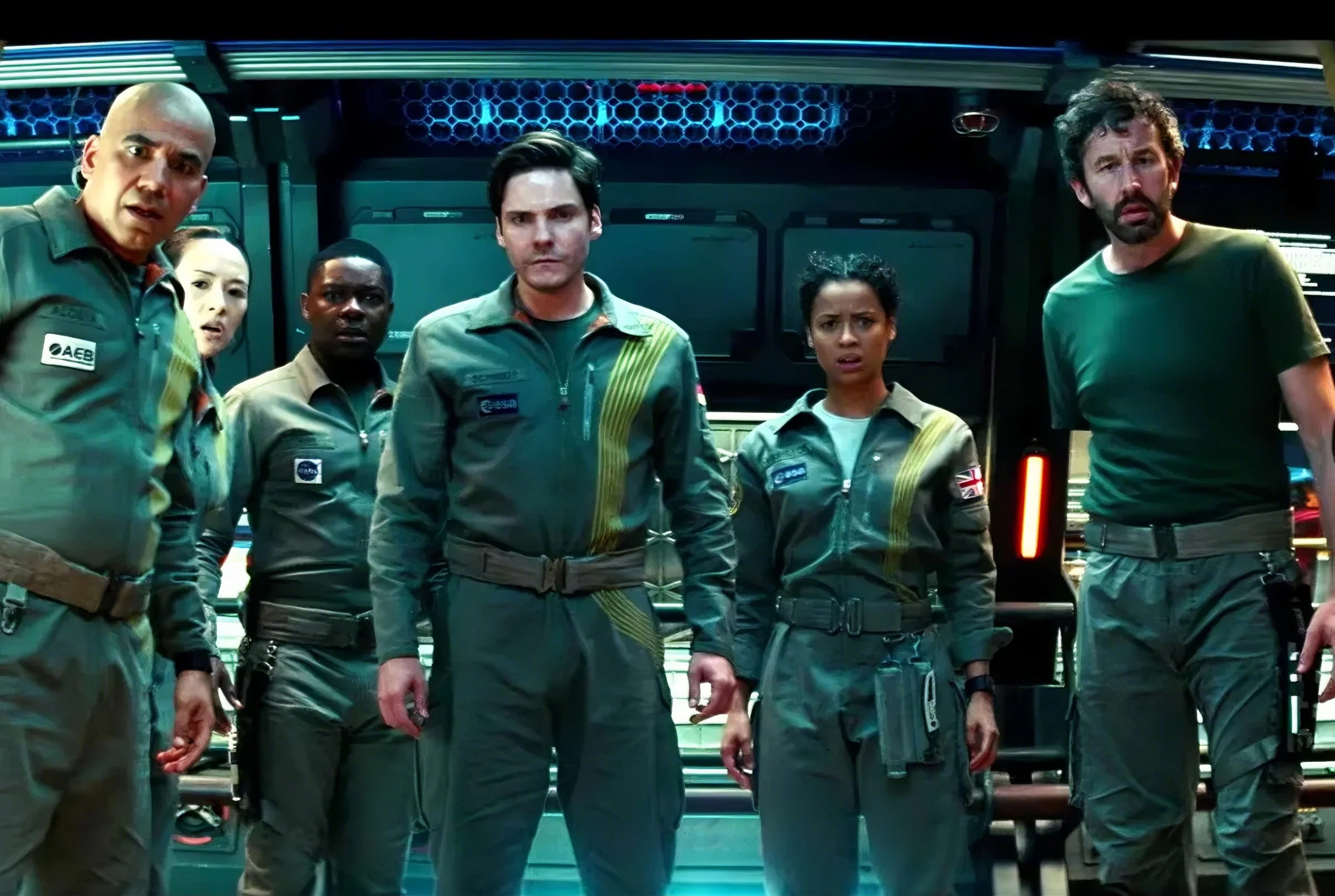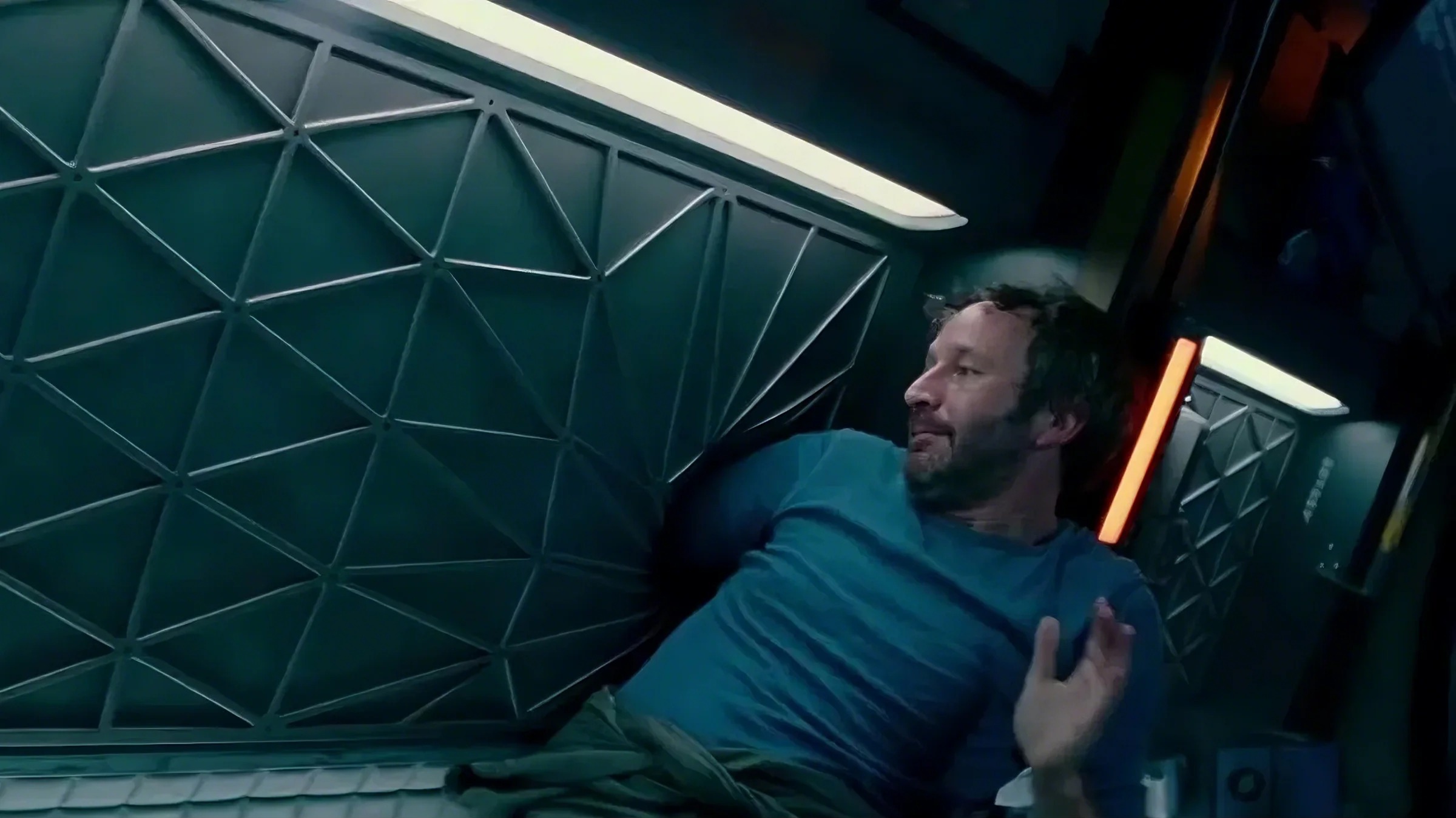The Cloverfield Paradox (2018), directed by Julius Onah and produced by J.J. Abrams, is the third entry in the Cloverfield franchise, combining elements of science fiction and horror. Unlike its predecessors, this installment attempts to explore the origin of the franchise’s interdimensional and extraterrestrial events.

Plot Summary
In the near future, Earth is facing a critical energy crisis. Scientists develop the Shepard particle accelerator aboard the Cloverfield Space Station, an international orbital research facility, to generate an infinite energy supply. The experiment, however, goes catastrophically wrong, tearing the fabric of space-time and displacing the station into an alternate dimension.
The crew, led by Ava Hamilton (Gugu Mbatha-Raw), struggles to understand their situation as strange and deadly phenomena occur. They encounter interdimensional anomalies, such as a woman, Jensen (Elizabeth Debicki), inexplicably appearing inside the station’s walls, and a severed arm that moves on its own. These events escalate as the crew realizes their experiment has caused chaos in multiple dimensions, threatening the existence of Earth and the station.
As tensions rise, the crew discovers that their counterparts in the alternate dimension are also affected. Jensen, from this dimension, reveals conflicting intentions, leading to betrayal and conflict. Ava, grappling with the loss of her family on Earth, faces a choice: return home to her reality or remain in the alternate dimension.

Eventually, the surviving crew members repair the accelerator and return to their dimension, but not without consequences. As they descend to Earth, a giant monster, reminiscent of the original Cloverfield creature, emerges from the clouds, connecting the film to the franchise’s lore.
Themes and Reception
The film explores themes of scientific hubris, survival, and the interconnectedness of parallel realities. It attempts to tie the Cloverfield films together, suggesting that the particle accelerator triggered interdimensional rifts, leading to the events of the previous films.
Released directly on Netflix after a surprise trailer during Super Bowl LII, the film’s marketing strategy was innovative, generating significant buzz. However, the movie received largely negative reviews, with criticism aimed at its convoluted plot, lack of coherence, and reliance on clichés. Despite its ambitious scope, many felt the film failed to capitalize on its intriguing premise.

Legacy
While The Cloverfield Paradox was criticized as the weakest entry in the series, it added layers to the Cloverfield mythology and provided a springboard for fan theories about the interconnected universe. The film’s unique release strategy and integration into the broader franchise remain points of discussion among fans.

La película es buena